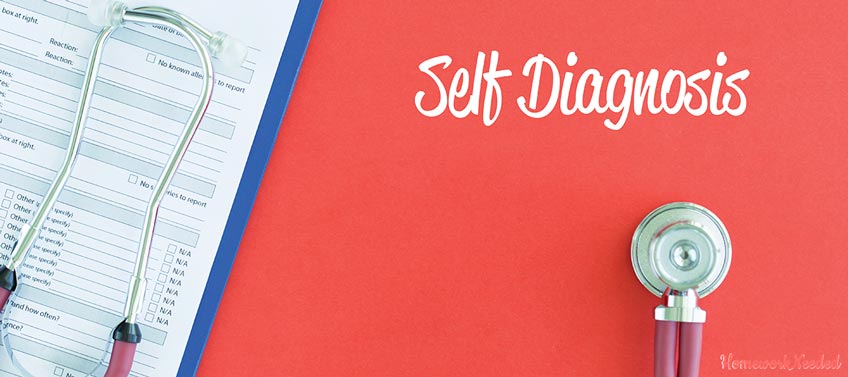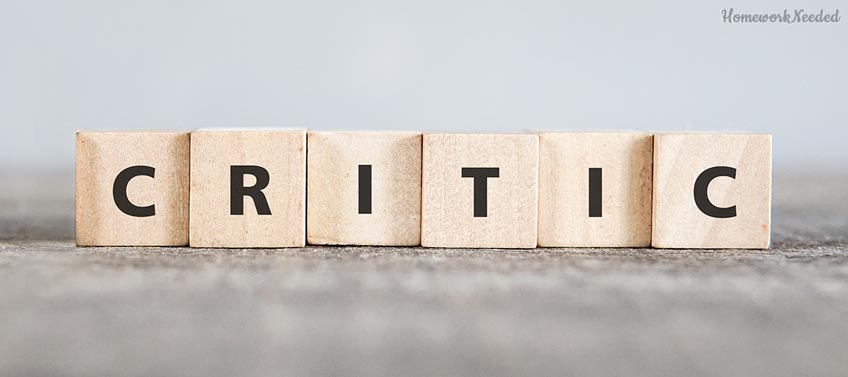One day, a young boy came to a wise man’s house and asked him: “What do I need to do to get wisdom?”. The wise man thought about something for a while and answered: “Go outside and stand there a bit”. There was heavy rain outside, and a young man thought: “How can that help me? Well, anything could happen”. He went out of the house and stood still right in the rain.

The boy got soaked to the skin in 10 minutes. He came back to the house and said; “I’ve done everything as you told me to do. What’s next?”. The teacher asked him: “Tell me how things looked like. Did you get any revelation while standing in the rain?”.
A young boy hesitated for a second, and then said: “Revelation? There was no any revelation. I was just standing and getting soaked like a fool!”. The wise man said: “You should be glad. That’s the real revelation. You made a step on your way of wisdom, and that is the right way. If you know that you are a fool, then you’ve already started changing yourself!”.
With this small story, I wanted to show you that your ability to perceive yourself critically, to see your own lacks and negative features, to understand your strengths and weaknesses is very important for you to gain personal development. Everyone who dares to understand themselves and to get wisdom has to be self-critical.
Here is the short list, allowing you to see advantages and disadvantages which can be caused by one’s self-criticism.
Self-Criticism Advantages:
- Ability of self-improvement;
- Objective vision about oneself;
- Recognition of one’s negative features and lacks;
- Possibility to make conclusions and to gain experience from mistakes;
- Possibility to correct actions;
- Motivation for achieving new goals;
- More bravery and self-confidence;
- Getting rid of “I-am-always-right” feeling;
- Getting rid of narcissism and grandstanding;
- Gaining the feel of respect towards others;
- Ability to recognize one’s own mistakes.
And some more precise words about this. In studying and learning new things, the student’s ability to criticize themselves activates their will to gain new knowledge and to get deeper into things. In career, self-criticism helps in finding one’s way for professional growth, to correct actions and to proceed in career building.
In the matter of interpersonal communication, self-criticism develops one’s skills of active listening and empathy, stimulates person’s perception of other viewpoints and becoming a more interesting collocutor. It helps making new connections as well.
And finally, if to speak about family, friendship and romantic relationships, self-criticism teaches a person to look for compromises, to recognize themselves being wrong, and to show a sincere care about close people.
Self-Criticism Disadvantages:
- Self-humiliation and self-beating;
- Decrease of self-esteem level and personal degradation;
- Depression and unstable mental state;
- Lack of self-confidence;
- Apathy and passiveness;
- Inability to make decisions;
- Carelessness;
- Negative view onto life and world;
- Inability to see one’s own advantages;
- Being too demanding about oneself;
- Worse communication with others;
- Guilt feeling and vulnerability for manipulations;
- Lack of positive emotions;
- Mental disorders’ progression.
These disadvantages can’t be ignored. Though, they can appear only if your self-criticism is unhealthy: too serious and absurd one. If you notice something like that in your mind, you can try correcting your state on your own: concentrate on your successes and achievements, surround yourself with positive people.
But when you fail to change your attitude towards yourself with these methods, there is a reason to visit a psychotherapist. An experienced and qualified specialist can help you create new behavioral models, recover your self-esteem and get rid of such destructive feelings as guilt, harmful self-reflection, and conscious humiliating of your own personality.
This is how self-criticism can harm.
What kind of it can improve your personality, and not destroy it? How can you use your will to criticize yourself in order to make it help you grow up and get new achievements? The next part of this article is devoted exactly to this dilemma.
How Do You Criticize Yourself Correctly?
The main, and probably the correct formula of self-criticism can be described as “plus – minus – plus”. This means, that if you could do something, then it is great. But if a mistake was made or if you had a false try, then you need to recognize this fact, to review it, to make conclusions and to do everything right next time.

In fact, you better have your own scale of values and beliefs in order to be able to criticize yourself correctly. Additionally, you need to have a “healthy” view onto your own life. People who are smart and able to criticize themselves objectively, know what is important to them and can determine what qualities and features they need. This knowledge is what helps them to find the right direction for self-development. In this case, their self-criticism will be clever, becoming a good support and stimulating to go on with improvements.
To develop a constructive self-criticism, you need to recognize that there are no perfect people in the world; to be able not to concentrate on your wish to be always right, but to have enough power and courage to stand your ground when you are objectively confident about your position. Develop your intuition and be able to hear it. Learn how to get satisfaction form your life and not to lose your sense of humor.
Let’s pay more attention to tips that can help you to develop a good, healthy self-criticism habit.
Be Honest About Yourself
First of all, self-criticism means honesty and sincerity in oneself. You can deceive anyone but yourself, and there is no sense in trying to hide or excuse something. Becoming able to tell the truth to yourself, you’ll make a huge step ahead and transform your own inner voice into that internal watcher who is able to hold you back when you are going to say unnecessary words or do unwanted actions.
Do not Despise Yourself
There is no mistake or failure that is worth starting to hate yourself. Self-criticism means self-development, and you need to understand that you have to work upon yourself without feeling useless. It is important to understand that you criticize not your personality, but your wrong actions, delusions, mistaken thoughts, opinions and views. Learn new things every day, get valuable experience from things you can and cannot do.
Control Your Ego
Every deed has its motive, and it can be both positive and negative. There is the simplest example: you show that you like another person, but what is the reason of your attitude? Do you do that “just because” or do you want to get some profits for yourself due to that? People often act based on their egoistic goals. Try “catching” yourself on such actions and coming to self-criticism after. Otherwise, you can deceive yourself: you think that you are a good person, but in fact, you are the one who wants everything for yourself. Working on your ego and learning how to control it will help you become more critical about your own personality.
Swallow Your Pride
The feeling of pride is good when there’s not too much of it. If it is what overwhelms everything around, a person is going to start defending himself or herself even from the most innocuous allegations of other people.
Your pride can tell you that you are always right, and deny the possibility for other opinions to exist. Due to that it can be difficult for you to estimate yourself objectively and to understand real reasons of your actions. If you “lower” that feeling a bit, you’ll be able to look on yourself from aside and to see that people around don’t want to hurt you somehow. Plus, you are going to start respecting other people, and that is the quality for people with healthy self-criticism. Still, don’t lose your pride completely: the lack of it will become a reason for things to go only worse.
Do not Blame Yourself
Criticizing yourself in a right way is not easy at all, but that is what helps you moving forward. So, here is the phrase about a balance again: control your actions, but do not go in for a too deep feeling of guilt. Sometimes, it is good for you to understand that you’re wrong. But if that guilt stays on your neck like a heavy stone, that is going to make you unhappy. What is done is done, life does not stand still, and you have to move forward as well. To do that you need to understand where you’re wrong, and to concentrate on doing right things.
Be Wiser
You decided to gain self-criticism. Your behavior started changing, you pay attention to your mistakes and do everything you can to avoid making them in future. But people you know, your relatives and friends behave in another way. They are used to live as they did before, and you start feeling some inner protest.
Here is the point where you need to understand: there is no sense in comparing yourself with other people or standing against them. One, nobody owes you a thing. Two, people live as they want to live. Three, everyone has their own process of development. Be wise instead of falling into an insult and resentment. Act as you think is right, and be the example of a harmonious and developing person for the others.
Listen to People
You are not always able to see yourself being wrong or making a mistake. But people who stay nearby can see it all clearly. A healthy self-criticism includes the ability of a person to perceive criticism constructively. And you need to support that ability, as it is going to cause a positive effect onto your personal growth.
People who tell you that you were wrong about something are not always those who want to insult you. Many people wish you all good and want to help you become better. The earlier you understand this, the higher your results will be.
Criticize Yourself Aloud
That is a very useful and effective trick connected to everything mentioned above in this or that way. If you've done or said something wrong, don’t be afraid to recognize that aloud before other people.
Why is that useful? First, people nearby can understand you and additionally help you see where the mistake exactly is and how to correct it. Second, when your behavior makes someone upset, self-criticism allows person to understand that you accept your mistake and ask for apologies. Nobody is going to make you feel additional guilt for something, for sure.
Still, you better use this trick with those who treat you positively. Otherwise, your confession may become a weapon your rivals could successfully use.
Try not to forget, that your task is to learn how to think and to be sincere with yourself in order to reach a new level, to become able to overcome your own weaknesses, delusions and prejudices. Self-criticism is going to become a basis for your correct self-esteem and ability to see your positive features and advantages.
If you really wish to make progress, you obligatory need to learn how to criticize yourself correctly. Self-criticism is a right way to get experience from your own mistakes, to reach mutual understanding in communication with other people, to find harmony and to improve your life quality.
Getting Rid of Excessive Self-Criticism
Just as the lack of self-criticism, the excessive one hurts a person’s mental health and that causes a negative effect on their whole life. In order to get rid of it, you need to understand that negative thoughts are consequences of your habits, but not your personality. To get rid of those habits, you need to be able to notice their appearance.

A good way is to note all your self-criticizing thoughts into a notebook. Once you feel bad again, such notes can help you get back to consciousness and see that excessive self-criticism affects everything you do.
That may seem to be quite easy, but things are not that simple. It is especially difficult to determine self-criticizing thoughts for those who already accepted their low self-esteem and lost the ability to treat themselves in any other way. Here is the tip: be more attentive to your emotional state changes. As a rule, sudden changes of your mood are marks of you self-criticizing yourself excessively.
To weaken the effect of your negative thoughts, praise yourself for any achievement, even the smallest and the most negligible one, and learn to perceive mistakes correctly: they give you experience and show wrong ways.
Of course, work on your disadvantages: determine features you would like to get rid of and qualities you want to gain. Find any possibility to solve ongoing tasks. And act!
Make self-criticism an instrument for your creation. Don’t turn it into a weapon that destroys you.

